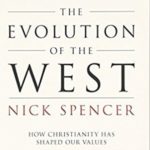“Jesus is Lord” (Romans 10:9).
This simple statement is the Christian Confession.
On one hand, the confession is simply an acknowledgment of reality. On the other, it is a declaration of political loyalty. Jesus is Lord of a Kingdom that stands in judgment over all other kingdoms. In an important sense, the Christian is utterly indifferent to the goings-on of politics in what St. Augustine called the City of Man. He believes that the rise and fall of kingdoms and nations is vanity, and that life on earth is only significant as a precursor to the coming age.
The early Christians never expected political power but rather a swift return of Christ. In the four canonical gospels, Jesus offered not a hint of guidance for the design of government institutions. Contrary to recent portrayals of Christ as a “zealot” dedicated to political revolution, Christ emphasized that his Kingdom is not of this world (John 18:36); he even instructed his followers to pay taxes to Caesar (Matt. 22:21).
Start your day with Public Discourse
Sign up and get our daily essays sent straight to your inbox.Yet, in a great irony of world history, a religion dedicated not to the temporal “City of Man” but to the eternal “City of God” became the official religion of the Roman Empire in the late fourth century. As a result, Christianity became one of the chief influences of Western civilization. Thus was introduced the Christian Conundrum, which is most apparent when Christians enjoy political prosperity and power.
The Christian confession suggests significant social and political implications. Even as we await the final realization of the Kingdom of God, Christians are to be—and often have been—constructive influences in their societies. Christian thought and practice infused Western culture with what philosopher Karl Popper called “humanitarianism,” a belief system based on the central Jewish and Christian teaching that human life is valuable, bearing the image of its Divine Creator. Likewise, according to Jacques Maritain, the Christian ethos has served as “leaven in the social and political life of nations,” arguably providing the firmest foundation for the ideals of liberal democracy and a spur for moral and material progress. The teaching of Christ to render what is Caesar’s to Caesar and what is God’s to God laid the intellectual groundwork for the distinction between church and state and the protection of religious freedom—both of which are great achievements of medieval and modern constitutionalism and are among the first principles of the American political order.
The Christian Conundrum in the United States
Christians in the United States face a particularly acute form of the Conundrum, particularly after the election of President Trump. As sociologist James Davison Hunter wrote before the Trump era, wealthy and engaged Christians on both the left and right have overly prioritized politics, building political action organizations dedicated to churning out voters for the Democratic and Republican parties. For Christian conservatives, social trends related to the family, morality, and religion spell disaster for the country. Their activism has been reactionary, focused especially on securing electoral power to change the composition of the US Supreme Court. Christians on the right have built powerful and effective political action organizations dedicated to mobilizing Christians to vote their values—that is, vote Republican.
Hunter also describes the political activism of the Christian left. More focused on issues of poverty and inequality, but equally committed to bringing Christian morality to the ballot box, the Christian left challenges the right’s claim as Christianity’s political standard-bearer. Those on the left call for social justice, with an emphasis on the prophetic elements of the Bible that urge compassion for the poor and reconstruction of society to protect the vulnerable.
Conservative Catholic theologian Richard John Neuhaus summed up the situation in American Babylon:
Protestant Churches that were once called mainline, and are now viewed as oldline or even sideline, have in recent decades planted the banner “Thus Saith the Lord” on the cultural and political platform of the left. The evangelical Protestant insurgency has planted the same banner on the cultural and political platform of the right . . . With notable exceptions, both undermine a religiously informed public philosophy for the American experiment, both contribute to the political corruption of Christian faith and the religious corruption of authentic politics; both have forgotten that, as it is said in the Letter to the Hebrews, we have here no abiding city.
For the Christian right, the sense of impending disaster reached fever pitch during the Obama presidency, but the 2016 election changed the game. Conservative Christians may be tempted to see the Trump reversal as a vindication of their efforts—even a triumph of providential origin. In particular, conservative Christian leaders have praised Trump and the Republican Senate for the installment of conservative judges to the federal courts—likely Trump’s most far-reaching accomplishment in domestic politics to date.
Politics and Christian Witness
This hyper-political, divided state of affairs is a matter of concern because it threatens to tarnish the Christian witness in an age when it is desperately needed; many people in our society have lost faith in institutions of all sorts and are living without purpose. Both Hunter and Neuhaus (in The Naked Public Square) remind Christians that politics is ultimately a competition to exercise coercive rule. This is necessary in the City of Man, but certainly not the primary work of the church. Christians should not entertain the illusion that politics offers a final solution to the really significant human problems—oppression, greed, injustice.
Yet neither should we ignore the social element of the Christian Confession. Former George W. Bush speechwriter Michael Gerson has lamented the divide that emerged between Christian progressives and fundamentalists at the end of the nineteenth century—liberals abandoning important doctrinal elements of the Christian witness and fundamentalists spurning the social element of the Christian vision. Gerson argues that modern evangelical Christianity lacks a “model or ideal of political engagement—an organizing theory of social action.”
While Jesus offered no concrete guidance for government structures, the Christian personal and social ethic is based on a radical love of God and neighbor that he dubbed the greatest commandments (Matt. 25:35-40). As Pope John Paul II taught in Evangelium Vitae, Christian teaching presents a vision of human flourishing and dignity built on the ultimate significance and worth of each person. It encourages us to actualize this vision by forming self-sacrificial relationships, embodied most obviously in the covenant of marriage, and to build healthy communities where each person can find belonging, purpose, and love.
The social issues—abortion, marriage, divorce, euthanasia, pornography—that have animated politically active, conservative Christians in the past few decades are issues regarding which Christians, indeed, have something important to say. They relate closely to John Paul’s “Gospel of Life.” But Christian Progressives too can trace their dedication to social justice and their concern for the poor and vulnerable to the biblical prophets and the Christian tradition of mercy. Both camps have scriptural and historical warrant for their causes—in fact, there is evidence that the concerns of the left and right are connected. The deterioration of the family and the emergence of a laissez-faire sexual culture exacerbate, if not cause, economic and social inequalities.
But both camps are also in danger of mistaking the City of Man for the City of God. In particular, the Evangelical alliance with Trump is dangerous for the Christian witness. Rod Dreher makes a convincing case in The Benedict Option that Christians who view President Trump’s election as a victory for the Christian social vision are mistaken. Dreher predicts that, despite the president’s claim to champion Christian causes, Christians’ association with the president holds as many challenges and dangers for the church’s social witness as it does promises of policy gains. In his view, “No administration in Washington, no matter how ostensibly pro-Christian, is capable of stopping cultural trends toward desacralization and fragmentation that have been building for centuries. To expect any different is to make an idol of politics.”
A New Christian Politics
Christian participation in national politics has its place, insofar as it contributes to the realization of the Christian witness and social vision. For example, Gerson recounts the important role that early Evangelicals played in the abolitionist movement. Even Evangelicals’ compromising alliance with the Trump Administration may open doors and lead to progress in contemporary humanitarian causes, such as prison reform. Such reform would build on the groundwork laid by organizations like Chuck Colson’s Prison Fellowship, which have introduced a welcome shift toward “redemption” and restoration in criminal justice policy.
Yet national politics should not be the primary focus of Christians’ efforts. We should never confuse the nation or political party with the church. Our membership in the Kingdom claims priority in our lives. Our civic responsibilities are important, but secondary. The more important and urgent task for Christians is the construction and maintenance of actual communities where the personal and social implications of the Christian Confession can be realized. The greatest challenge for Christians in the coming decades is to help young people see and accept the truth of the Christian Confession and lead personal, professional, and communal lives reflecting that truth. This is the primary work of the City of God, and some evidence suggests that it may be hindered by an excessive emphasis on national politics, though apparently not in the manner and to the degree often assumed.
Dreher proposes “a new kind of Christian politics” focused on building and strengthening local communities where a Christian subculture—filled with the joy of brotherhood, service, and faith—can thrive. Inspired by Czech dissident Václev Havel’s argument for joyful resistance to Communist rule, the new Christian politics is an “antipolitical politics,” a call to “live within the truth”—the truth of the Christian Confession. Dreher’s proposal accords with the Christian social vision I propose here, a vision that can be lived out in any regime or circumstance, provided we have the courage and patience to commit ourselves to the work.
As Neuhaus would say, Christians ought to cultivate an “Augustinian sensibility.” We must recognize that we are pilgrims in our own country, members of the City of God on pilgrimage in the City of Man. As St. Augustine wrote, the histories of these two cities are “inextricably intermingled … in the concrete reality of history,” yet their characters and final destinies are worlds apart. The challenges of present-day politics in the United States remind us that Christians will always be pilgrims in this world.
There is no relief in this life from the Christian Conundrum. The best we can do is to reclaim an Augustinian sensibility, balancing it with a commitment to seek the good of “Babylon,” our exilic home, and clinging to the truth that “Jesus is Lord.”














